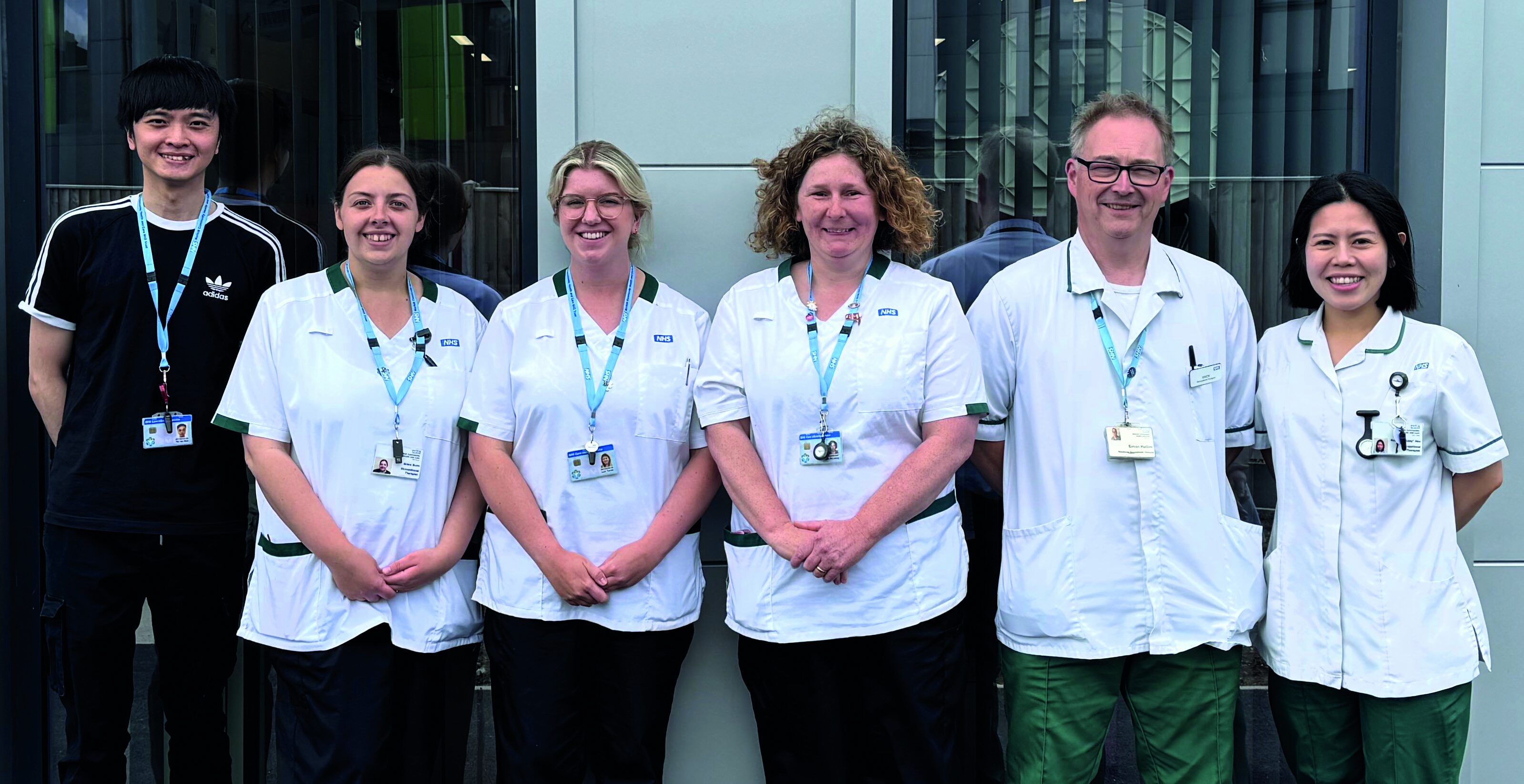At the newly-opened Willow Therapy Unit in Norwich, occupational therapists are leading a reablement-first approach that’s transforming recovery. Through personalised care, meaningful activity and a focus on independence, patients are rebuilding their lives – often in just two weeks.

Above left to right: Anson Wan, Gracie Bunn, Lucy Turner, Bryony McLening, Simon Hollins and Abby Hsu
On 13 March 2025, the Willow Therapy Unit opened in Norwich, after Norfolk Community Health and Care NHS Trust was awarded £19.3 million in funding from the Department of Health and Social Care to build a 48-bed inpatient unit.
The unit is staffed by nurses, therapists, assistant practitioners and clinical support workers, and was designed with patient rehabilitation at its core.
There is a large multi-purpose day/dining room, incorporating state-of the-art tools, such as NIRVANA and SMART table, to enhance patient reablement. The patient areas are spacious and airy, with several accessible outdoor spaces, including a wildflower garden that patients are actively encouraged to access.
There are 10 occupational therapists, at bands five, six and seven, and alongside their physiotherapy and assistant practitioner colleagues, these therapists provide a seven-day-a-week service, from 7am to 7.30pm. This enables patients to make more progress in less time; indeed, the target length of stay at the Willow Therapy Unit is just 14 days.
The patient group consists of adults, primarily older men and women recovering from falls and fractures. The unit offers care and reablement to a wide range of patients and includes two specialist bariatric rooms.
Occupational therapists use their initial contact with each patient to work collaboratively with them and their families, gathering information about the patient’s usual level of function, home environment, key relationships and interests.
With a reablement-led approach, the unit aims to empower patients to regain confidence and independence. The multidisciplinary leadership team supports each other and the wider team to deliver holistic, high standards of nursing and therapy care.
There is a strong focus on restoring function. Meaningful activities are identified and treatment plans are personalised to support recovery. Goals are set with patients at the beginning of their stay and reviewed regularly. Upon discharge, a summary of each patient’s progress is provided and any ongoing goals are passed on to the community therapy and/or reablement services.
The Functional Independence Measure (FIM) is used to record functional ability at admission and on discharge. Data collected so far indicates improvement during patients’ stays. Most patients are discharged to their own homes, some without the need for formal care packages.
The Hospital Anxiety and Depression Scale (HADS) is also used to identify any anxiety and/or depression related to hospitalisation. If concerns are identified, the whole team works together to address them and support greater engagement with reablement.
Independence is encouraged in all activities of daily living as part of each patient’s rehabilitation. Staff at all levels have completed ‘Better Conversations’ training to help them engage with and empower patients to regain the ability to carry out meaningful tasks.
‘Every contact counts’ is at the heart of the Willow Therapy Unit’s ethos, promoting a goal-led and patient-centred approach, 24 hours a day. Individualised functional assessments are carried out, incorporating personal and domestic activities of daily living – particularly washing, dressing, toileting, transfers and meal and drink preparation.
A weekly programme of activities is available to support patients’ mental and physical wellbeing and volunteers visit daily to help deliver group sessions, including a breakfast club, social group, coffee club and patient education meetings focused on falls prevention. In addition, regular exercise sessions complement one-toone therapy.
The Willow Therapy Unit is a new and evolving service, continually developing to enhance rehabilitation, reduce the need for care packages and lower the risk of hospital readmission. The approach is innovative and ambitious.
Occupational therapy staff have been asked to work in new and different ways to support patient outcomes. Together with their multidisciplinary team colleagues, they are actively involved in ongoing service development. Through their collaboration, ideas and experience, patients at the Willow Therapy Unit receive an enhanced, holistic rehabilitation experience.
Words BRYONY MCLENING, Clinical Lead Occupational Therapist, Willow Therapy Unit
With special thanks to the following occupational therapists who have contributed to the service development and delivery at the unit: Lucy Turner, Gracie Bunn, Keri Burroughs, Abby Hsu, Anson Wan, Julie Noakes, Abigail Awuku, Carlson Yau, Simon Hollins, Lynnette Betts, Jeffrey Chan and Sunny Lai